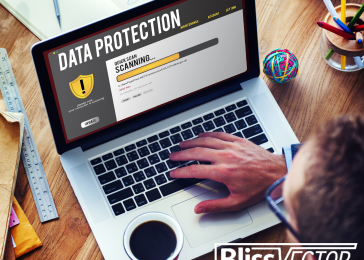The Top 20 Cybersecurity Tips
After Covid hit, we all found that working from home offers convenience and flexibility, but it also exposes our homes to various cyber threats. Safeguarding your home workspace is crucial to protect sensitive data and ensure a secure remote working environment. Here’s a comprehensive guide to the top 20 cybersecurity tips for users working from home:
-
Update Regularly:
Keep your digital defenses strong by regularly updating your operating system, antivirus software, and applications. These updates patch vulnerabilities, making it harder for cybercriminals to exploit weaknesses.
-
Strong Passwords:
Craft robust passwords using a mix of upper and lowercase letters, numbers, and symbols. Avoid easily guessable information and change passwords periodically for added security.
-
Two-Factor Authentication (2FA):
Bolster your login security with 2FA. This additional layer requires a code from your phone or email, providing an extra barrier against unauthorized access.
-
Secure Wi-Fi:
Protect your virtual gateway by using a strong, unique password for your Wi-Fi network. Employ WPA3 encryption to keep prying eyes away from your network.
-
Router Security:
Fortify your router by changing the default login credentials. Create a unique username and a strong password to prevent unauthorized access.
-
Firewall Protection:
Activate your device’s firewall or install a reputable firewall application. Firewalls act as a barrier between your device and potential online threats.
-
VPN Usage:
Encrypt your internet connection with a Virtual Private Network (VPN) to ensure your data remains private, especially when using public Wi-Fi networks.
-
Secure Video Conferencing:
Set passwords for virtual meetings and use waiting rooms to control entry. This prevents unauthorized access and protects sensitive information shared during video conferences.
-
Email Vigilance:
Beware of phishing emails by avoiding suspicious links or attachments. Verify the sender’s authenticity before responding to any requests for sensitive information.
-
Regular Backups:
Safeguard your essential data by regularly backing up to an external hard drive or secure cloud service. This ensures you can recover important information in case of a cyber incident.
-
Device Encryption:
Enable full-disk encryption on your devices to protect your data from unauthorized access in the event of device loss or theft.
-
Application Permissions:
Review and limit app permissions to minimize potential security risks. Some apps may request unnecessary access to your data, making your information vulnerable.
-
Disable Unused Services:
Reduce potential attack surfaces by turning off unused services and features on your devices. This limits avenues through which cyber threats can exploit vulnerabilities.
-
Security Software:
Install reputable antivirus and anti-malware software. Regularly update these programs to ensure they can effectively counter the latest cyber threats.
-
Secure Bluetooth:
Disable Bluetooth when not in use to prevent unauthorized connections. Cybercriminals may exploit Bluetooth vulnerabilities to gain access to your devices.
16. Safe Browsing Practices:
Practice safe online habits by using secure, HTTPS-enabled websites. Avoid downloading files from untrustworthy sources and be cautious of fake websites attempting to steal your information.
-
Employee Training:
Educate yourself on common cyber threats and techniques. Awareness is key to recognizing and avoiding potential online attacks.
-
Privacy Filters:
Use privacy screens on your devices to prevent unauthorized viewing of sensitive information, especially in shared or public spaces.
-
Physical Security:
Lock your devices when not in use and keep them in a secure location to prevent theft. Physical security is paramount in protecting your hardware and the data it contains.
-
Regular Audits:
Conduct regular cybersecurity audits to review and update your security measures based on the evolving threat landscape. Ensure that your defenses remain effective against the latest cyber threats.
For those seeking personalized guidance, BlissVector is offering a free 30-minute consultation call for business owners or workers concerned about their cybersecurity. Take the first step in securing your virtual workspace by reaching out to BlissVector today. Your cyber safety is just a call away.
For more cybersecurity information and blog posts, check out our daily cybersecurity blog HERE.




